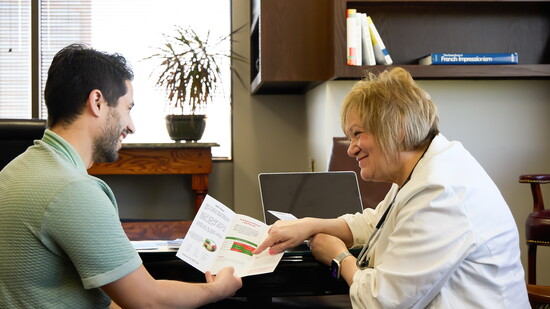“More” has become a moving target—entirely subjective, and nearly as difficult to define as it is to achieve. Meanwhile, men often believe exhaustion signals commitment, and that caring for one’s well-being is indulgent, lazy, or even selfish. In too many circles, fatigue and burnout are worn like badges of honor.
But this mindset is not just outdated—it is dangerous. Health depends on the cooperation of body, mind, and spirit; when one system falls out of sync, the others inevitably follow. Though damage may build slowly, chronic stress, illness, physical pain, and strained relationships are inevitable when personal health is pushed to the margins.
Mental health often flags imbalance first. A 2017 study in the International Archives of Occupational and Environmental Health found that long hours significantly increase the risk of anxiety and depression. Burnout and emotional exhaustion don’t just drain energy—they make it difficult to show up with clarity, intention, or presence, whether at work, home, or within your own thoughts.
The physical toll is just as serious. A 2021 joint report by the World Health Organization and the International Labour Organization found that working more than 55 hours per week raises the risk of stroke by 35 percent and heart disease by 17 percent. Chronic stress quietly distorts priorities, strains the body, and narrows the path back to health.
While “balance” may look different for everyone, it always begins with awareness and intention. Whatever you think, feel, want, battle, or cherish—your health depends on whether you prioritize what truly matters or only what feels urgent.
For this Men’s Issue, I spoke with three Tulsa-area professionals to explore how they define and maintain balance in their lives.
Andrew Forrest, Senior Pastor at Asbury Church - Tulsa, knows these challenges well and says:
"Rather than balance, I tend to think of energy—do I have the appropriate energy for this area of my life? For me, there are warning signs when things aren’t right: when I don’t look forward to what’s on my calendar, when I wake up just as tired as when I went to bed, or when I am resentful of the people who need things from me.
To avoid burnout, it’s important that I maintain healthy habits: I need to get up early and pray, work out every day, and have space in my calendar—an open afternoon, an evening at home, or a full day without commitments.
When I neglect those practices, I find myself run down and resentful, but when I’m doing those things, I have the energy and joy I need to share with the people around me."
Dr. Gregory Hill, Cardiologist at St. Francis - Tulsa. When Dr. Hill reflects on balance, he recalls the principle of homeostasis—the body’s ability to work toward stability amid changes and transitions. A 60–80 hour workweek is not unusual for him. He relies heavily on early morning Bible reading to prepare for the day’s demands. Medical mission trips with Collective Compassion help him reconnect with his deeper sense of purpose.
“There’s not a day I’m not grateful to be on the right end of the stethoscope,” he says.
Dan Simoni, Partner at Price Waterhouse Coopers – Tulsa. He once viewed balance as a luxury—until stress-related medical symptoms forced a reckoning. Over time, he learned to stop compartmentalizing life and began treating his personal, professional, and relational selves as one integrated identity.
“When I realized I’m not defined by my job alone, or my family alone, but all of it together, my quality of life improved in every way,” he explains. Today, he blocks 90 minutes daily for exercise, meditation, and dedicated family time. He encourages others to “treat yourself like your most important client.”
The hustle may build a career, but balance builds a life—one where purpose, presence, and peace can thrive.
The hustle may build a career, but balance builds a life.
